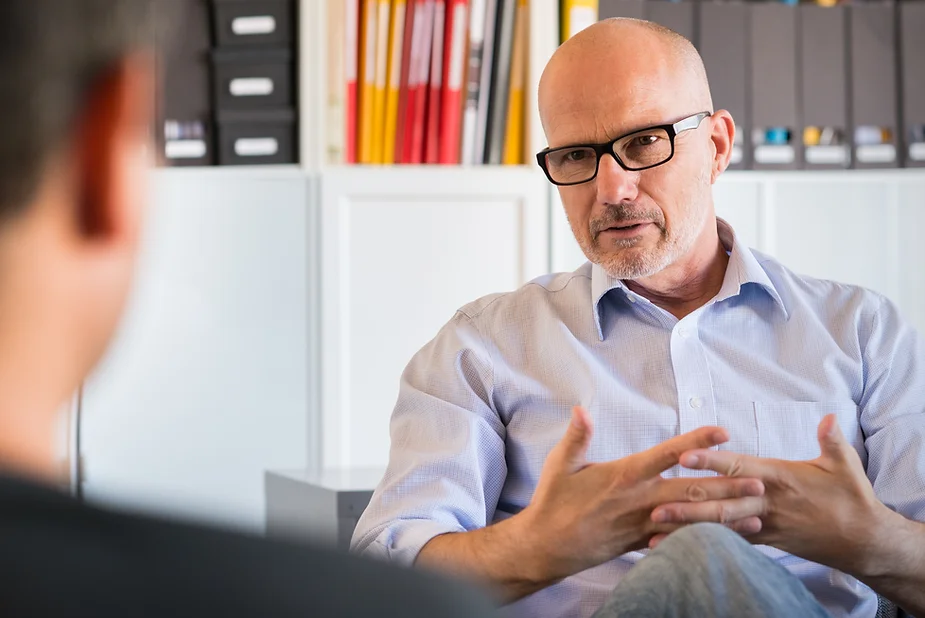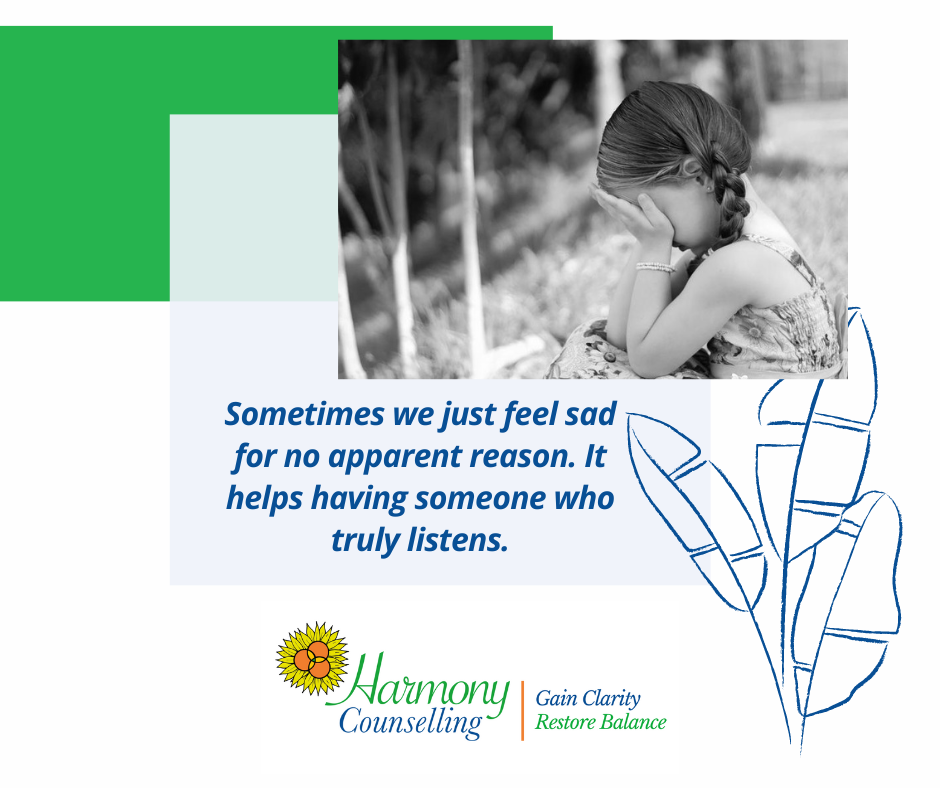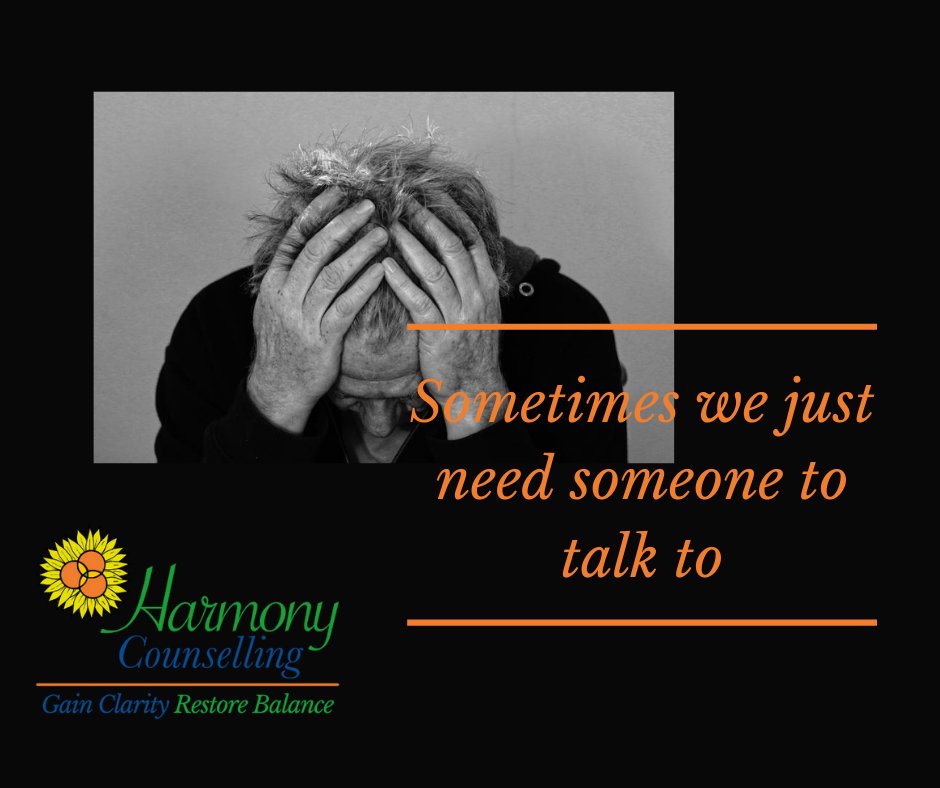Choosing the Right Counsellor for You
|
The biggest predictor of good outcomes in therapy is the relationship between the Counsellor and the Client. This has been proven time and again over many decades of research.
|
| Often referred to as the Therapeutic Alliance, this relationship is more important than the treatment modality (therapeutic approach or theory) and even the experience levels of the Counsellor. This supporting relationship is built on a positive connection, which helps generate trust. The non-judgmental authenticity of the Counsellor allows the Client to feel safe, even when uncomfortable issues are being explored.
|

|

|

|

|
What do Counsellors do?
|
| Therapists work with their Clients to help better manage their feelings, thoughts and beliefs to help them develop healthier and more effective patterns of behaviour.
|

|
| You might want to consider counselling therapy if:
|

|
- You're feeling a prolonged sense of sadness or helplessness.
- Your problems never seem to get better, despite your efforts and
- You're struggling to perform everyday activities or concentrate on
- Your actions are causing harm to yourself or others - eg. you're
|

|

|

|
Choosing Your Counsellor - 8 Steps
|

|
- Search for a Counsellor at a convenient location for you. Although some travel time to and from a session is useful for mental preparation and reflection, you don't want to be feeling that it's too big an effort to visit them.
- Set aside some time to read a few websites to help get a feel for who they are and what they offer. As much as possible, look for a Counsellor who instinctively inspires feelings of comfort & trust in you. See if they post content in their social media which is relevant to you and consider whether they present themselves in a professional manner.
- Try to have some idea of what you want to achieve in therapy. It doesn't have to be a perfect plan & it's perfectly fine to turn up not knowing exactly what you're looking for. Therapy will often lead you in unexpected directions but your therapeutic goals should become clearer after 2 or 3 sessions with your Counsellor.
- Don't worry too much about different therapeutic approaches or methods. In fact, if a Counsellor overstates their experience in a particular field, it may be that they have already pre-determined to use that approach with you. A good Counsellor will allow treatment to evolve, using whatever approach they believe will be most effective at any given time or situation.
- Consider the gender, age, religion, cultural background or ethnicity of the Counsellor. Whilst it is good to remain open- minded regarding these factors, if you feel you will connect better with a Counsellor of a certain type then, by all means, use that as a way to narrow your search.
- Try to get referrals from people you trust. If you can't get these from friends or family, look for testimonials on counselling websites as you will get a sense of them via real responses from their other Clients.
- Consider the cost. In order to gain any real and sustainable benefits from your session, it is likely you will need at least 8-12 sessions. However, it is also possible to achieve positive results from only a few sessions.
- Contact your shortlisted Counsellor directly using the number given on their website. Most good Counsellors will provide a free 15 minute consultation, from where you can get a sense of their manner and they can advise if they believe they will be able to help you and your problem situation. Note that your right to confidentiality as a Client should start the moment you make this call, regardless of whether or not you go on to book a session. Ask questions during this call to increase your comfort levels.
|
|

|

|

|
Signs your Counsellor is a good fit for you
|

|
- If you are nervous starting the session, but feel less nervous as you go on.
- You feel you can talk openly about your experiences with your Counsellor without being judged.
- Your Counsellor is attentive and a good listener, and helps you understand yourself more deeply.
- You are comfortable with the amount the Counsellor shares about themselves & their life.
- After therapy, you feel glad you went and hopeful about the future.
- The Counsellor encourages you to go outside your comfort zone, but not too far to the point where it becomes traumatic.
- Your Counsellor is kind but doesn't seem to want to be your casual friend.
- You feel the Counsellor is helping you move forward to eventually end therapy.
|

|
Signs your Counsellor is NOT a good fit for you
|

|
- It seems like the Counsellor is not really listening or appears distracted.
- You feel judged or invalidated by the Counsellor.
- After therapy, you feel worse about yourself or your choices.
- The Counsellor shares more about themselves than you are comfortable hearing.
- The Counsellor asks you to spend time with them outside the therapy sessions (unless for pre-defined therapeutic purposes).
- The Counsellor gives you advice, or tells you what you should or shouldn't do.
|

|
| Don't be afraid to ditch a Counsellor who's not a good fit for you - this is your treatment and it's all about what's best for you. A good Counsellor will never feel resentful if you move on.
|

|
In Conclusion
|

|
| Find a Counsellor you feel comfortable with, one who you trust and makes you feel like you are truly being heard.
|

|
| Once you commit to a Counsellor, do your part to give therapy every opportunity to work. This may mean telling your Counsellor if you feel you are not making progress or you have concerns about the direction your therapy is taking.
|

|
| Also, reflect and work on the issues discussed between sessions. By actively working with your Counsellor, the two of you can create a more successful outcome.
|